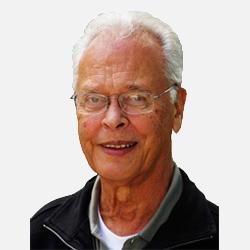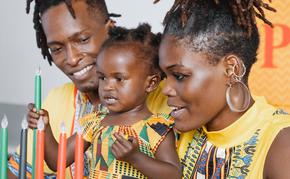The views expressed in our content reflect individual perspectives and do not represent the official views of the Baha'i Faith.
Baha’is around the world want to engage in a greater degree of social discourse and social action.
The Universal House of Justice, the democratically-elected international leadership body of the world’s Baha’is, have asked everyone to engage to a greater degree in social discourse and social action. Their 2010 letter on the subject said:
… the community’s engagement with society can, and indeed must, increase. At this crucial point … it seems appropriate that the friends everywhere would reflect on the nature of the contributions which their growing, vibrant communities will make to the material and spiritual progress of society. In this respect, it will prove fruitful to think in terms of two interconnected and mutually reinforcing areas of activity: involvement in social action and participation in the prevalent discourse of society. – The Universal House of Justice, to the Baha’is of the World, April, 2010.
What do “social action” and “social discourse” mean in a Baha’i context?
Most appropriately conceived in terms of a spectrum, social action can range from fairly informal efforts of limited duration undertaken by individuals or small groups of friends to programmes of social and economic development with a high level of complexity and sophistication implemented by Baha’i-inspired organizations. Irrespective of its scope and scale, all social action seeks to apply the teachings and principles of the Faith to improve some aspect of the social or economic life of a population, however modestly. – Ibid.
In the discussions I’ve had with fellow Baha’is regarding social discourse and social action, thoughts almost immediately go to what the Baha’i institutions can do to interface and interact with other religious and secular organizations to promote the material and spiritual progress of the larger community.
But seldom, if ever, does the discussion focus on what one person can do as an individual as he or she interacts with other individuals.
I’ll use myself as a poor example. For the past nine years, because of both the freedom and resources allowed through retirement, I have frequently traveled to various places in the world. During the course of those trips I have had the privilege of meeting a number of very interesting individuals of extremely diverse backgrounds, ages, nationalities and races, and academic disciplines. Many now have become part of my community of friends with whom I am in constant communication. At the same time, I have attended international conferences that attract individuals from all over the world because of the quality and nature of the subjects being discussed at those gatherings. Many of these newly-found friends are the result of those conference forums.
In Bangalore, 2008, at Christ University, the topic of the conference was the philosophical works of the 20th Century British scholar, Alfred North Whitehead, one of the crowning intellects of the 20th Century. Just recently, at that same university, I attended a conference entitled: “Mysticism without Bounds” to which almost 300 participants came, hailing from 5 continents, 30 nations and territories. Travel and attending these and similar conferences and gatherings have afforded me the opportunity to reflect on such experiences in the light of the Universal House of Justice’s guidance on social discourse and social action as applied on a one-to-one basis.
My first effort in such gatherings was to make friends. In thinking about this first step, I decided to resist the temptation to immediately upon meeting someone new launch into a discussion about the Baha’i teachings. Instead, I focused upon building a friendship within the context of service—service as determined by that person, as revealed through dialogue and discussion.
With such individuals of immense capacity it isn’t difficult to share Baha’i concepts, initially without attribution, not for the purpose of plagiarizing the Baha’i writings or presenting them as my own thoughts, but rather to facilitate a focus initially on the power of the Word, as it were. This method of social discourse avoids the possibility of confusing and running the risk of turning off the person with whom the discussion is taking place because of what to him or her initially appears to be strange words and names of strange people, or any attempt to proselytize—which is forbidden to Baha’is.
What I’ve found is that before long they, themselves, will ask, “Where did you get these ideas?”
I have found that at that point, because they were the ones who asked, the time was right to provide appropriate attribution. Moreover, through discussion I learned that with each individual there was a burning question, a central issue or concern they were struggling with and/or wanting an answer to, which then provided me with a key as to how that individual can best be served in his or her specific quest.
The next step then was not to posture myself as a “solution giver,” which would be very presumptuous, but rather as one who responds by saying something to the effect that this is what was helpful to me in understanding that issue or working through that very same concern. Such discussions eventually can lead to that golden moment when one can introduce new friends to the teachings of Baha’u’llah and what they really mean.

















Comments
Sign in or create an account
Continue with Facebookor